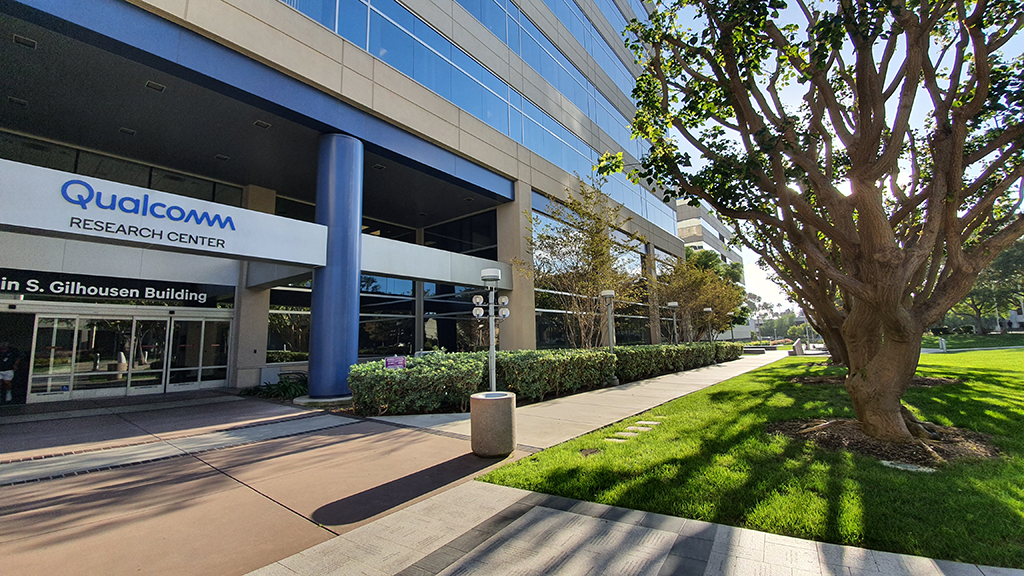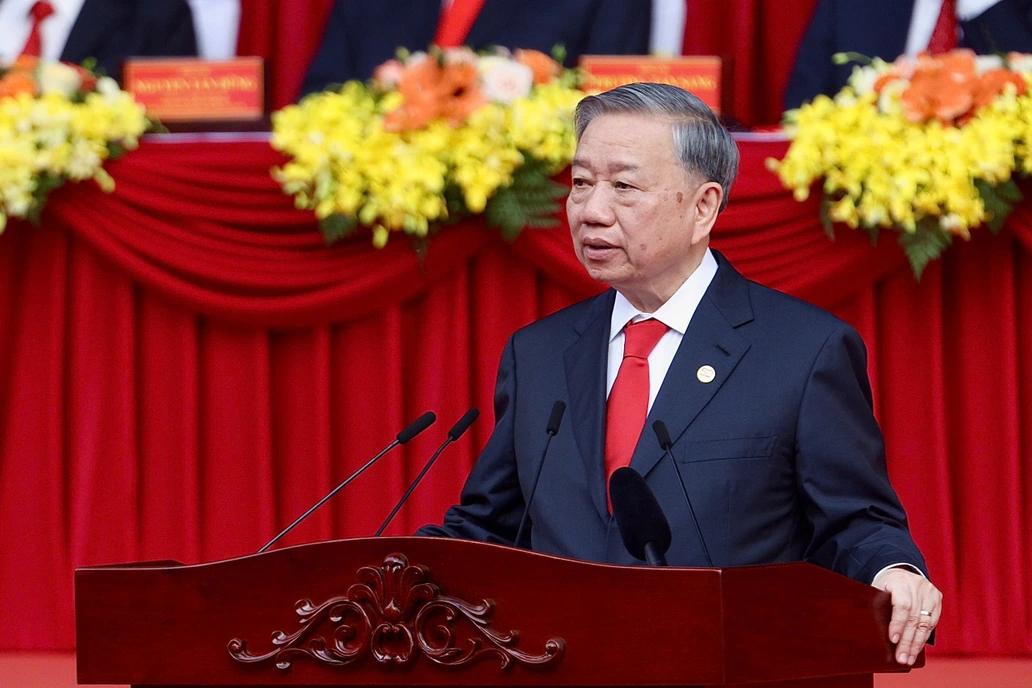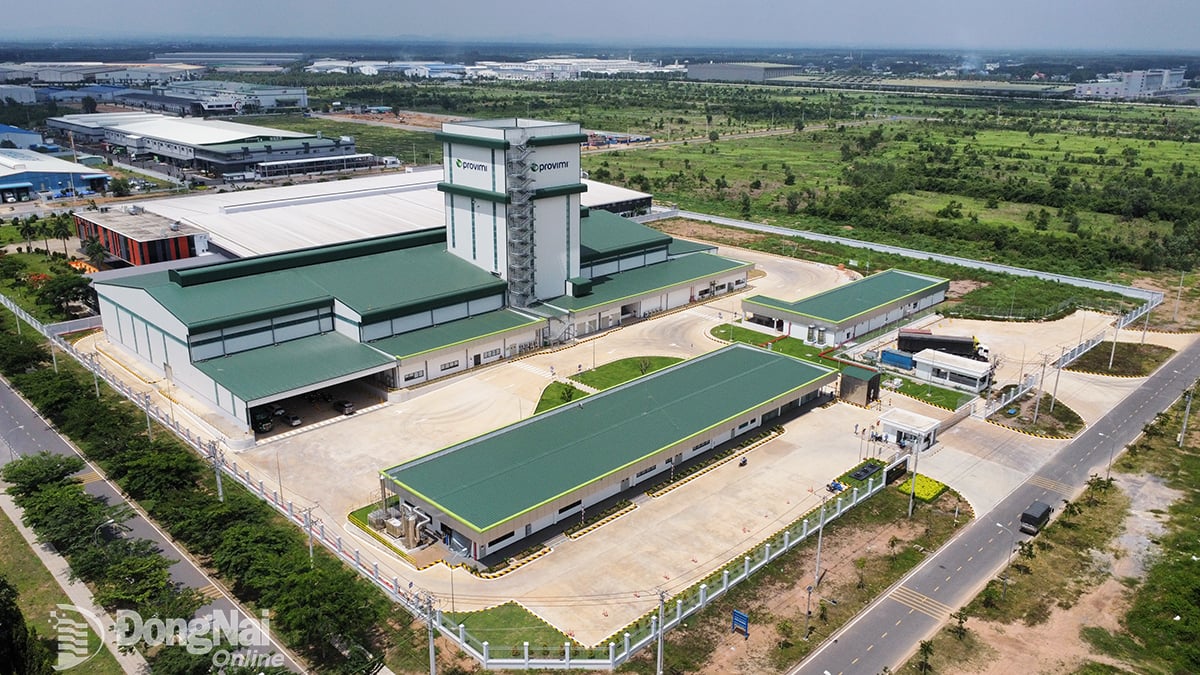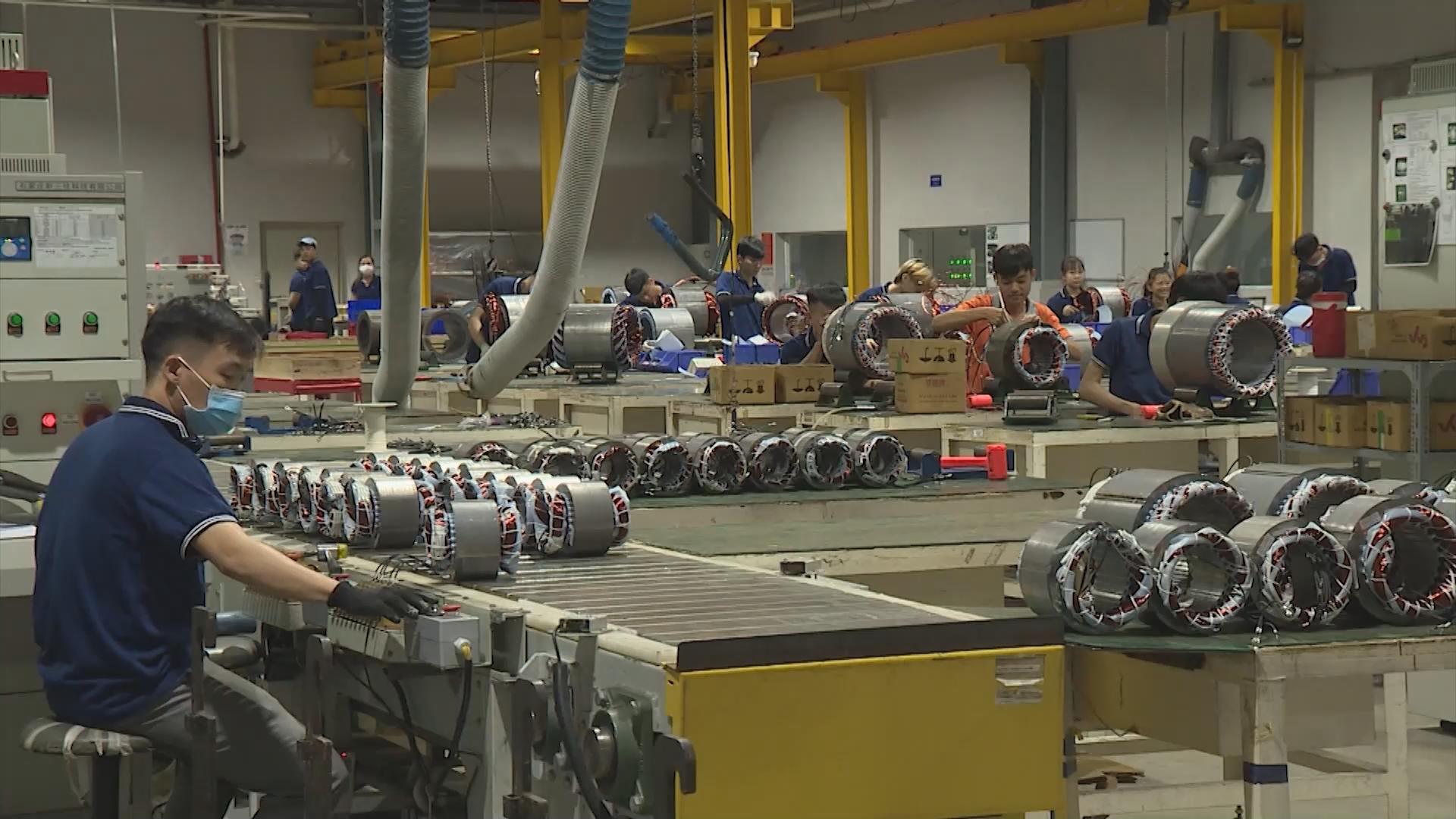Yesterday, September 21, Reuters quoted a well-informed source saying that Qualcomm recently approached Intel to consider the possibility of acquiring this struggling corporation.
Prospects for a "huge" acquisition
Qualcomm CEO Cristiano Amon is personally involved in the negotiations to acquire Intel and is considering various options for the deal. Earlier in September, several sources revealed that Qualcomm was evaluating the possibility of acquiring Intel's design division.
Neither Intel nor Qualcomm responded to Reuters' report. Qualcomm shares fell 2.9% after the report was published, while Intel shares rose 3.3%.

A building in Qualcomm's headquarters in San Diego (southern California, USA)
Intel is currently in a difficult situation with poor business results. The reason is believed to be because the corporation cannot keep up with its competitors in the race for advanced semiconductor chips, especially semiconductor chips that meet the explosive development of artificial intelligence (AI).
Meanwhile, failing to keep up with its rivals in advanced semiconductor chips has forced Intel to increase its investment in new manufacturing systems to provide advanced chips to increase its competitiveness. The company has even expanded its foundry business to accept chip foundries for other companies in the industry. This has increased investment costs while revenue has declined, making the situation more difficult. These reasons have led to recent losses and Intel has had to carry out a plan to cut 15,000 employees.
Since the beginning of the year, Intel's stock price has fallen nearly 60%, from approximately $50/share to about $21/share. However, Intel's current market value is still approximately $100 billion, while Qualcomm's is currently valued at about $188 billion. Therefore, if Qualcomm successfully acquires Intel, it will become a "giant" company in the semiconductor industry.

Intel headquarters in Santa Clara (northern California, USA)
Qualcomm's Ambition
Of course, even if Qualcomm successfully acquires Intel, it will still be difficult for it to catch up with NVIDIA's market value of more than $2.8 trillion. However, owning Intel creates great strength for Qualcomm to move towards a dominant position in the chip processing segment for mobile devices and personal computers (PCs). For many years, Qualcomm has held the leading position in the chip processing market for smartphones, tablets and many other mobile technology devices.
Late last year, after a period of launching many different processor lines based on the ARM structure (which is specialized for smartphones and tablets) for integration into laptops, Qualcomm launched the Snapdragon X Plus and X Elite platforms with performance that is not inferior to the X86-based processor lines that Intel and AMD have produced for decades. Not only that, Snapdragon X Elite and X Plus also have the advantage of saving power and integrating many AI support technologies. By June, the first laptop lines equipped with Snapdragon X Elite and X Plus, in collaboration with Microsoft, laid the foundation for the Copilot+ laptop line, were sold on the market, opening the era of a new generation of AI laptops.
However, after a period of launching on the market, laptops integrated with Snapdragon platform are still not convincing enough in terms of their ability to replace or "overthrow" competitors such as Intel or AMD. In addition, laptops integrated with Snapdragon processors based on ARM structure still have some limitations when using software and applications compared to laptops using processors based on X86 structure. Therefore, if merging with Intel's processor chip division, Qualcomm can dominate the processor chip not only on mobile devices but also on PCs (including desktops and laptops). In addition, Intel also has discrete graphics processors to complement Qualcomm's product line.
However, having only about $13 billion in cash will make it difficult for Qualcomm to have the financial resources to acquire Intel.
Positive signal for Intel
Before the news broke that Qualcomm was trying to acquire Intel, the US media reported positive signs. Specifically, CEO Pat Gelsinger recently announced that the corporation had signed an agreement with Amazon Web Services (AWS - part of Amazon) to produce semiconductor chips for AWS.
In addition, Intel will convert its foundry business into a subsidiary with an independent board of directors. This move is intended to create a clear separation between Intel's design and manufacturing businesses, giving foundry customers peace of mind that Intel's design teams will not have access to chip designs that partners order from Intel's foundry. Earlier this year, Intel announced the opening of a foundry business with the aim of meeting the needs of technology corporations such as Amazon, Microsoft, etc. to produce custom chips for AI development.
In addition, Intel recently confirmed that it has received up to $3 billion in support from the US CHIPS Act in a partnership program with the US Department of Defense.
Source: https://thanhnien.vn/tiep-can-thau-tom-intel-qualcomm-huong-den-tham-vong-thong-tri-185240921200427878.htm



![[Photo] Ho Chi Minh City residents "stay up all night" waiting for the April 30th celebration](https://vstatic.vietnam.vn/vietnam/resource/IMAGE/2025/4/30/560e44ae9dad47669cbc4415766deccf)
![[Photo] Hanoi is brightly decorated to celebrate the 50th anniversary of National Reunification Day](https://vstatic.vietnam.vn/vietnam/resource/IMAGE/2025/4/29/ad75eff9e4e14ac2af4e6636843a6b53)
![[Photo] Nghe An: Bustling atmosphere celebrating the 50th anniversary of Southern Liberation and National Reunification Day](https://vstatic.vietnam.vn/vietnam/resource/IMAGE/2025/4/29/64f2981da7bb4b0eb1940aa64034e6a7)
![[Photo] Ho Chi Minh City: People are willing to stay up all night to watch the parade](https://vstatic.vietnam.vn/vietnam/resource/IMAGE/2025/4/29/cf71fdfd4d814022ac35377a7f34dfd1)
![[Photo] General Secretary attends special art program "Spring of Unification"](https://vstatic.vietnam.vn/vietnam/resource/IMAGE/2025/4/29/e90c8902ae5c4958b79e26b20700a980)
















![[Video] Patriotic Inspiration](https://vstatic.vietnam.vn/vietnam/resource/IMAGE/2025/4/29/4122d64c16c84bea920148165978c62a)











![[Photo] Prime Minister Pham Minh Chinh meets to prepare for negotiations with the United States](https://vstatic.vietnam.vn/vietnam/resource/IMAGE/2025/4/29/76e3106b9a114f37a2905bc41df55f48)































































Comment (0)